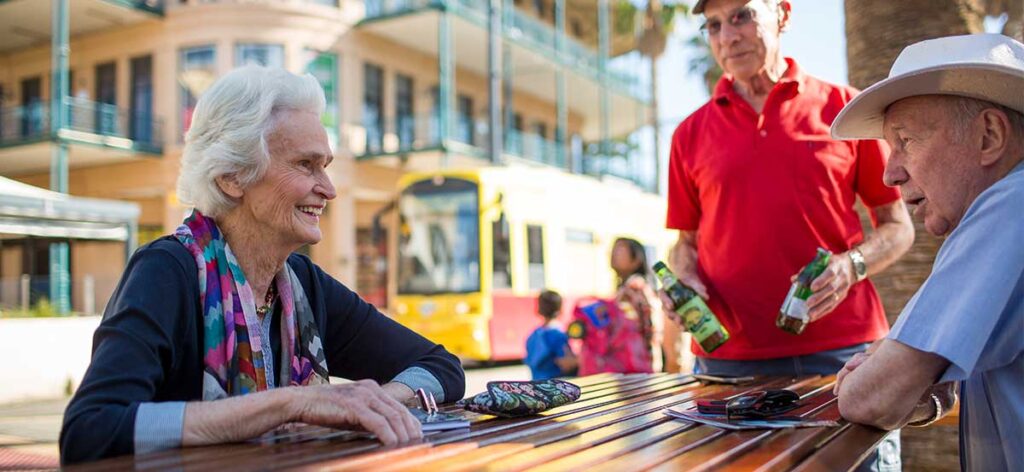Living well with dementia
Ian’s story
Fifteen years ago, Ian Gladstone was diagnosed with early-onset semantic dementia, a type of Frontotemporal dementia which amongst other symptoms affects people’s word finding and communication skills.
Following his diagnosis, Ian has become an advocate for living well with dementia, sharing his knowledge with communities across Australia.
Ian’s esteemed resume includes former Chair of Alzheimer’s Australia Dementia Advisory Committee, member of the Dementia Australia Research Foundation Scientific Panel, and alumni of the Dementia Alliance International.
He has shared the four tips he advocates for to live well with dementia.
Find your support person
Choose a good care partner to support you on your journey. It is essential this person is prepared to stand beside you through all the ‘ups and downs’. They will need to have a good understanding of the disease, what your challenges are and how they can support you.
My support person is my sister Anne. She is in daily contact with me, makes sure I am taking the right medications, accompanies me to appointments, and overall supports me to maintain my health and wellbeing.
Maintain your interests
Wherever possible keep doing the activities and experiences you enjoyed before your diagnosis. The challenge is often maintaining the right balance between keeping involved, active, and having things to look forward to, verse challenging yourself too much which can cause undue stress.
Of most benefit is doing the things you love with friends and family. I have also found that if you maintain humour in your daily life you will live well with dementia.
Many providers can connect you with your existing hobbies or help you find new ones. You may be eligible to use funding from Home Care or Commonwealth Home Support packages to help subsidise these experiences.
Enjoy supportive company
Enjoy supportive company, where people listen to you, don’t always try to solve your problems, rush you or speak for you.
Having a social group outside of your home network can also assist. This gives you the opportunity to socialise with those who may be going through a similar experience while giving your support person time for themselves.
Know the avenues of support
There are many avenues of support and organisations to reach out to. You will discover you are not alone on this journey.
It is important to find a supportive GP and memory specialist and maintain regular contact with them as you are advised.
Other avenues include ACH Group’s Dementia Advisory service, and Dementia Australia’s education, counselling and linking services, and their helpline on 1800 100 500.



